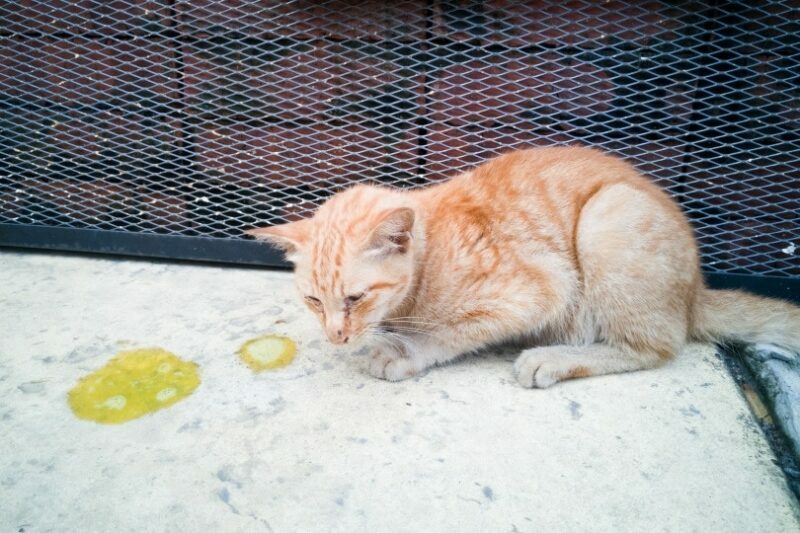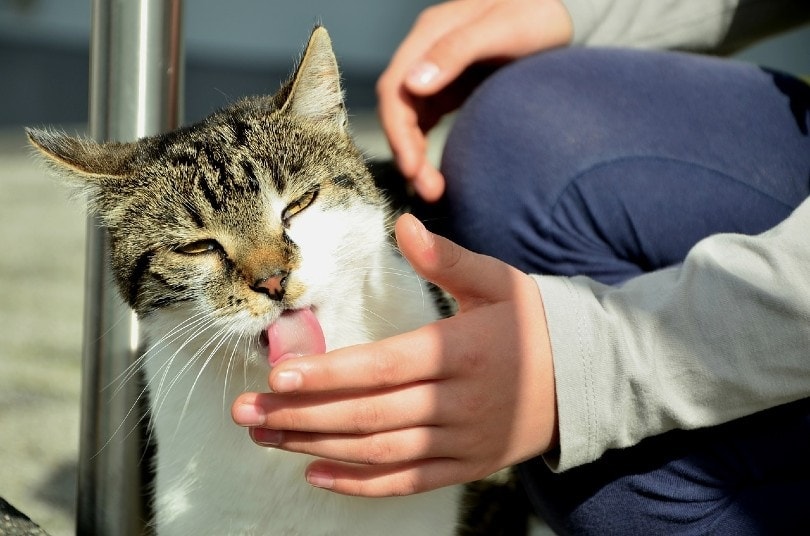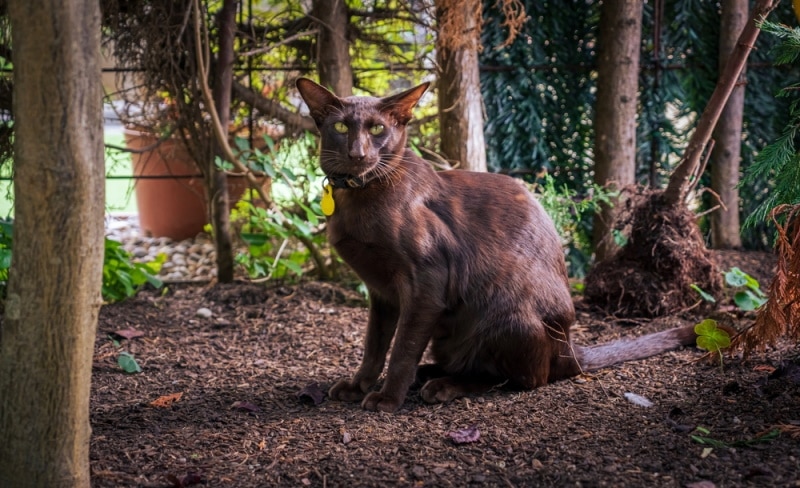My Cat Lost His Voice: 6 Vet-Approved Causes & Remedies

Updated on
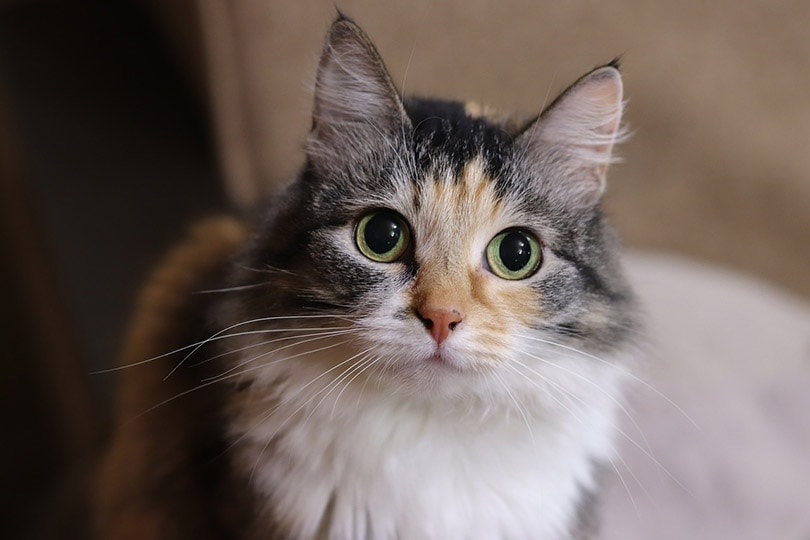
Cats can make all sorts of sounds to communicate, such as meowing, purring, and yowling. As a cat owner, it’s important to be aware of how vocal your cat can be. When your cat becomes uncharacteristically quiet or has a hoarse meow, it’s important to pay close attention. He might have developed a health condition that needs examining.
Here are some causes and remedies for why your cat isn’t vocalizing as much as usual.
The 6 Reasons Cats Lose Their Voices
1. Overuse
Sometimes, your cat may have simply overused its voice. Similar to how humans can lose their voice from excessive use or yelling, cats can also get a hoarse voice. The best way to determine if your cat lost his voice due to overuse is if you can recall any recent occurrences of them yowling loudly.
Time is the best remedy for overuse. Try not to encourage your cat to meow and let him have time to recover his voice. His voice should return within a couple of days. It may be a little hoarse at first, but it’ll eventually transition back to its normal sound.
2. Rabies
One of the symptoms of rabies is a hoarse voice. So, if your cat recently escaped the house or is an outdoor cat and returns with any wounds, there’s a possibility that he encountered a rabid animal. If your cat has rabies, they’ll also exhibit other symptoms:
- Changes in usual behavior
- Aggression
- Drooling or foaming at the mouth
- Muscle control loss
If you suspect that your cat was exposed to a rabid animal, contact your veterinarian right away. If you react quickly, a booster may prevent your cat from getting infected. There’s no treatment for rabies once a cat starts exhibiting symptoms, so it’s vital to stay on top of getting your cat their annual rabies vaccines.
3. Hyperthyroidism
Older cats can develop hyperthyroidism. When the thyroid glands become overactive, they can cause your cat to have a hoarse meow. Here are other symptoms of hyperthyroidism:
- Weight loss
- Increased appetite
- Increased thirst
- Increase urination
- Vomiting
- Diarrhea
- Unkempt coat
If you suspect hyperthyroidism, schedule a visit to your veterinarian. Your veterinarian will do a physical exam and run blood tests. Treatments for hyperthyroidism include medication, radioactive iodine therapy, dietary changes, and surgery.
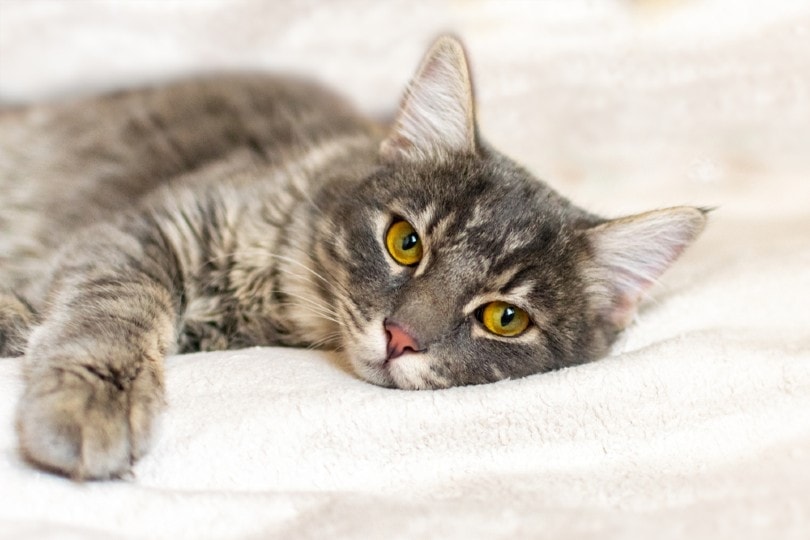
4. Laryngitis in Cats
Upper respiratory infections (URI) can often lead to laryngitis. Laryngitis in cats occurs when the larynx gets inflamed, making it painful for your cat to make a vocal sound. Along with a muted meow, cats with laryngitis can experience other symptoms:
- Wheezing
- Dry cough
- Runny nose
- Noisy breathing
- Bad breath
- Difficulty swallowing
- Panting
- Lethargy
Your veterinarian can conduct a physical exam to determine the cause of laryngitis and treatment will depend on the cause. Sometimes your cats will receive a prescription of antibiotics or steroids.
5. Laryngeal Paralysis
Sometimes, nerve damage can occur in your cat’s larynx. Laryngeal paralysis can occur when the cartilage of the larynx doesn’t function normally while breathing. Along with losing his voice, your cat can also show these symptoms:
- Dry cough
- Voice change
- Noisy breathing
- Difficulty breathing
- Vomiting
Laryngeal paralysis can become very serious, so it’s important to get your cat to your veterinarian. Treatment will depend on how much the condition has progressed. Usually, the condition requires surgery, which is often very successful and leads to a good outcome.
6. Growths Near Vocal Cords
Sometimes, polyps or tumors can grow in the throat and cause cats to have a difficult time using their voices. Many symptoms that cats will show are caused by obstructions in their throats:
- Difficulty breathing
- Noisy breathing
- Bluish mucous membranes
- Difficulty swallowing
- Difficulty ingesting food
- Lethargy
- Sudden collapse
The best thing to do in this situation is to take your cat to the veterinarian. Your veterinarian will conduct blood tests and look through the cat’s medical history. MRIs and CT scans can also help detect the presence of growths in the throat.
Surgery is sometimes a possible course of treatment. However, throat cancer tends to be aggressive, so treatment will most likely revolve around maintaining a cat’s quality of life and pain management.
How to Soothe a Cat’s Throat
Laryngitis in cats can be painful for cats. Fortunately, there are some things that you can do at home to make your cat feel more comfortable. First, you can use a humidifier to increase the moisture levels in a room. The humidity will help soothe a cat’s dry and itchy throat.
You can also temporarily feed your cat wet food so that he has an easier time eating. If your cat refuses to eat, you can try warming up the food. You can also try feeding your cat chicken broth or beef broth made specifically for pets.

Do Cats Become Quiet When They’re Depressed?
Cats can become depressed if they experience a loss or aren’t having their needs met. However, rather than becoming quieter, they tend to become more vocal. So, if your cat’s more chatty than usual, see if he’s also showing other signs of depression:
- Decreased appetite
- Loss of interest in playing
- Less frequent self-grooming
- Increased sleeping
- Increased urination
Overall, if your cat has become quiet, it’s not very likely that it’s because he’s depressed.
Final Thoughts
Cats can lose their voice for several reasons, and it’s often because of an underlying condition. Therefore, if your cat loses its voice, make sure to closely monitor how he’s doing for the next several days. If his voice slowly returns, you have nothing to worry about.
However, if you notice any additional symptoms or behavioral changes, make sure to work with your veterinarian to diagnose the cause and give helpful treatment to your cat as soon as possible.
See Also:
Featured Image Credit: Svetlbel, Pixabay



